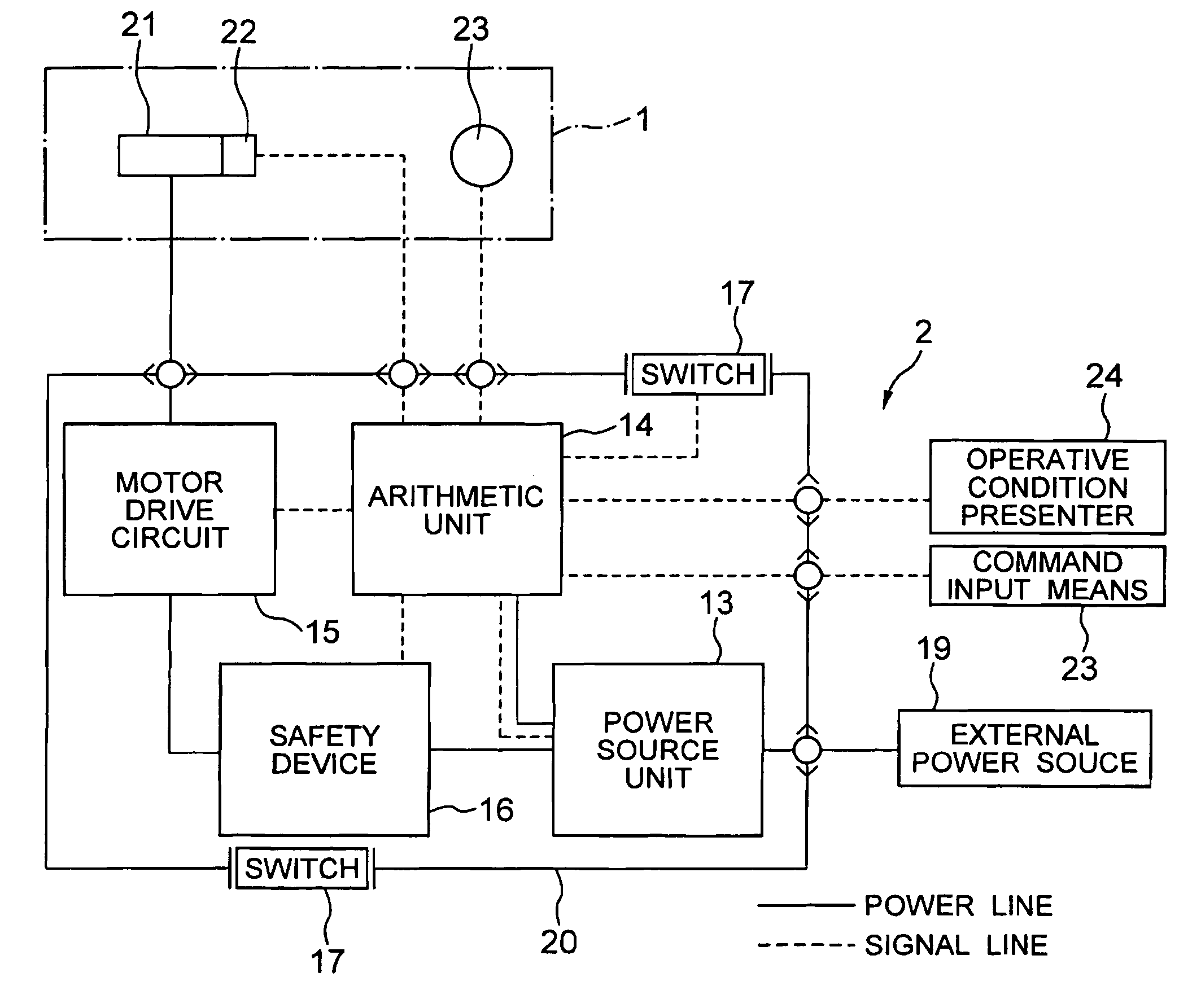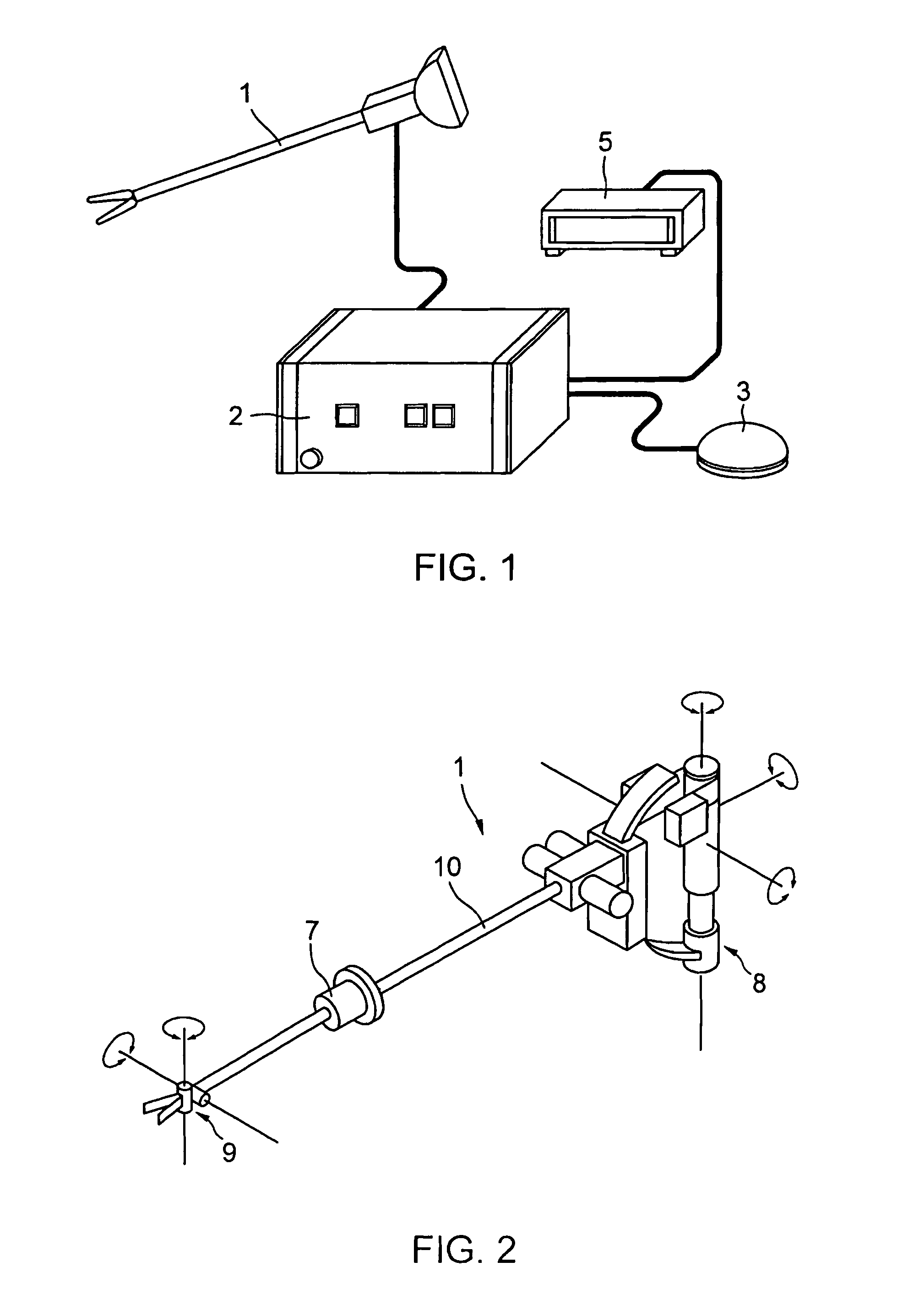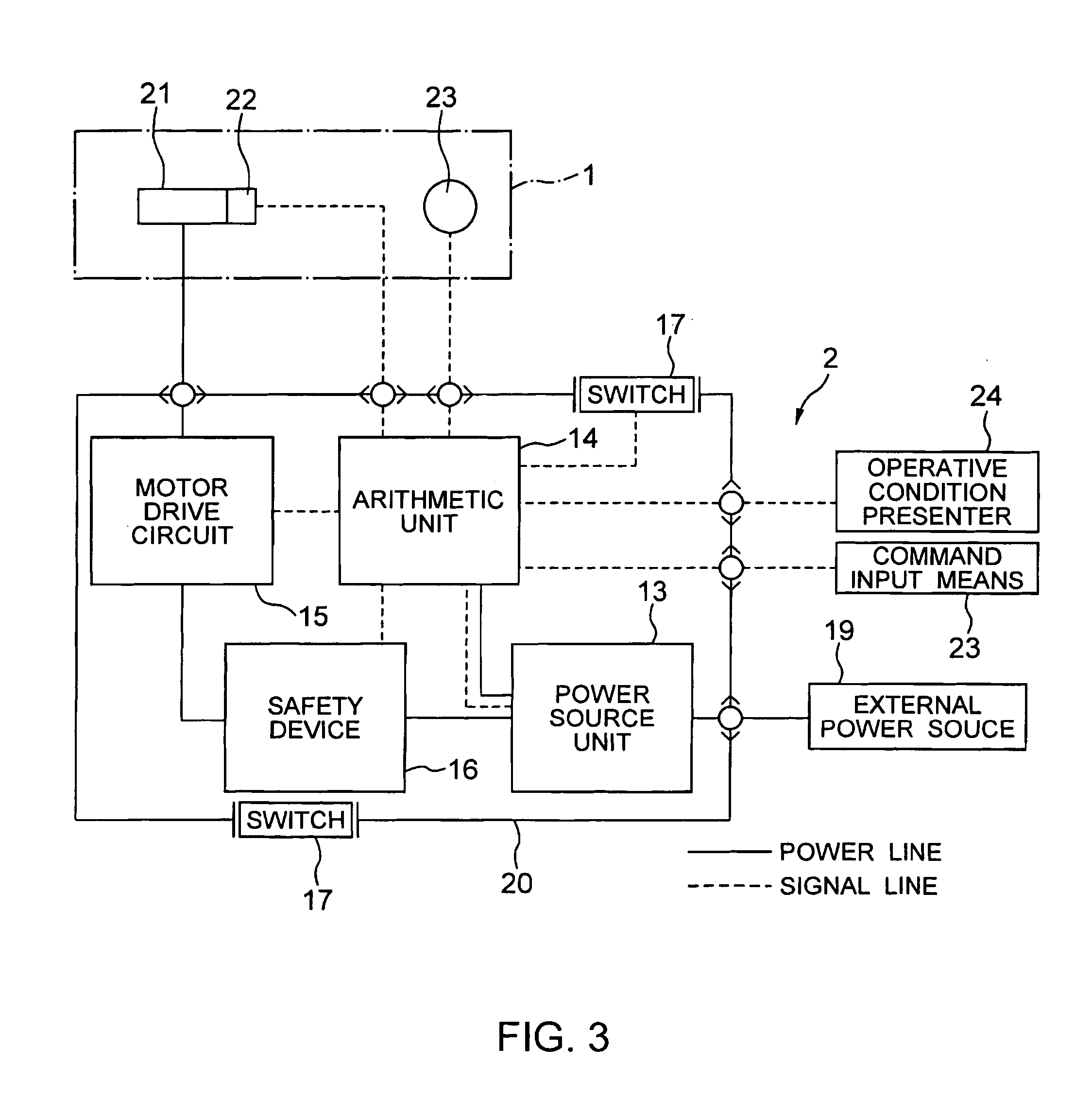Manipulator and its control apparatus and method
a manipulator and control apparatus technology, applied in the field of manipulators, can solve the problems of unsuitable surgery, unfavorable control, and unfavorable control of conventional laparoscope surgery, and achieve the effect of improving controllability and safety
- Summary
- Abstract
- Description
- Claims
- Application Information
AI Technical Summary
Benefits of technology
Problems solved by technology
Method used
Image
Examples
example 1
[0076]Here is explained an application of determining the parameter α in Equation (3). In a medical manipulator having three degrees of freedom of motion including the freedom about the gripper axis in addition to the freedom about the yawing axis and the rolling axis, as shown in FIG. 8, the slave unit of the manipulator have the movable ranges of ±90 degrees about the yawing axis, ±180 degrees about the rolling axis, and 30 degrees of opening angle (of each finger) about the gripper axis (the gripper is shut at 0 degree). The parameter β of the normal master / slave mode is determined as Equation (12). This corresponds to β=1.
[0077](Δθs-yawΔθS-rollΔθs-grip)=(100010001)(Δθm-yawΔθm-rollΔθm-grip)(12)
[0078]Since this medical manipulator has a relatively large ovable range about the rolling axis than those about the other two axes, the parameter in the transitional master / slave operative mode was determined as Equation (13) and Equation (14).
[0079]When Δθm and d have the sam...
example 2
[0084]In case much importance is given to the response to controls also in the transitional master / slave operative mode to realize alignment of orientations in the transitional master / slave operative mode without reducing the speed lower than that of the normal master / slave operative mode, the value of αext under D0), the difference in orientation is removed.
[0085]In contrast, in case much importance is given to safety and an increase of the speed should be prevented, the value of αext under D>0 is set to β because the accelerated follow is desired to cancel in the transitional master / slave operative mode. In this case, the difference in orientation is not removed, but an increase of the speed does not occur. Instead, αext is determined to remove the difference in orientation when D<0.
[0086]If the value of αext under D<0 is always β regardless of the sign of D, this is the case where the slave unit moves relative to the movement of the master unit while the difference d remains unch...
example 3
[0088]Here is explained an application of an embodiment of the invention for resuming the master / slave operation. There is a method of restricting movements about any particular one of the axes of the slave unit in the master / slave operative mode in order to enhance the controllability. The condition restricting a movement about the particular axis corresponds to the condition where the particular axis of the master / slave operative axes is set in a non-master / slave operative mode. The embodiment of the invention is applicable also upon returning to the normal master / slave operative mode. Regarding the release of the restriction as the start command of the master / slave operative mode, transitional master / slave operation may be conducted regarding the axis heretofore restricted.
PUM
 Login to View More
Login to View More Abstract
Description
Claims
Application Information
 Login to View More
Login to View More - R&D
- Intellectual Property
- Life Sciences
- Materials
- Tech Scout
- Unparalleled Data Quality
- Higher Quality Content
- 60% Fewer Hallucinations
Browse by: Latest US Patents, China's latest patents, Technical Efficacy Thesaurus, Application Domain, Technology Topic, Popular Technical Reports.
© 2025 PatSnap. All rights reserved.Legal|Privacy policy|Modern Slavery Act Transparency Statement|Sitemap|About US| Contact US: help@patsnap.com



